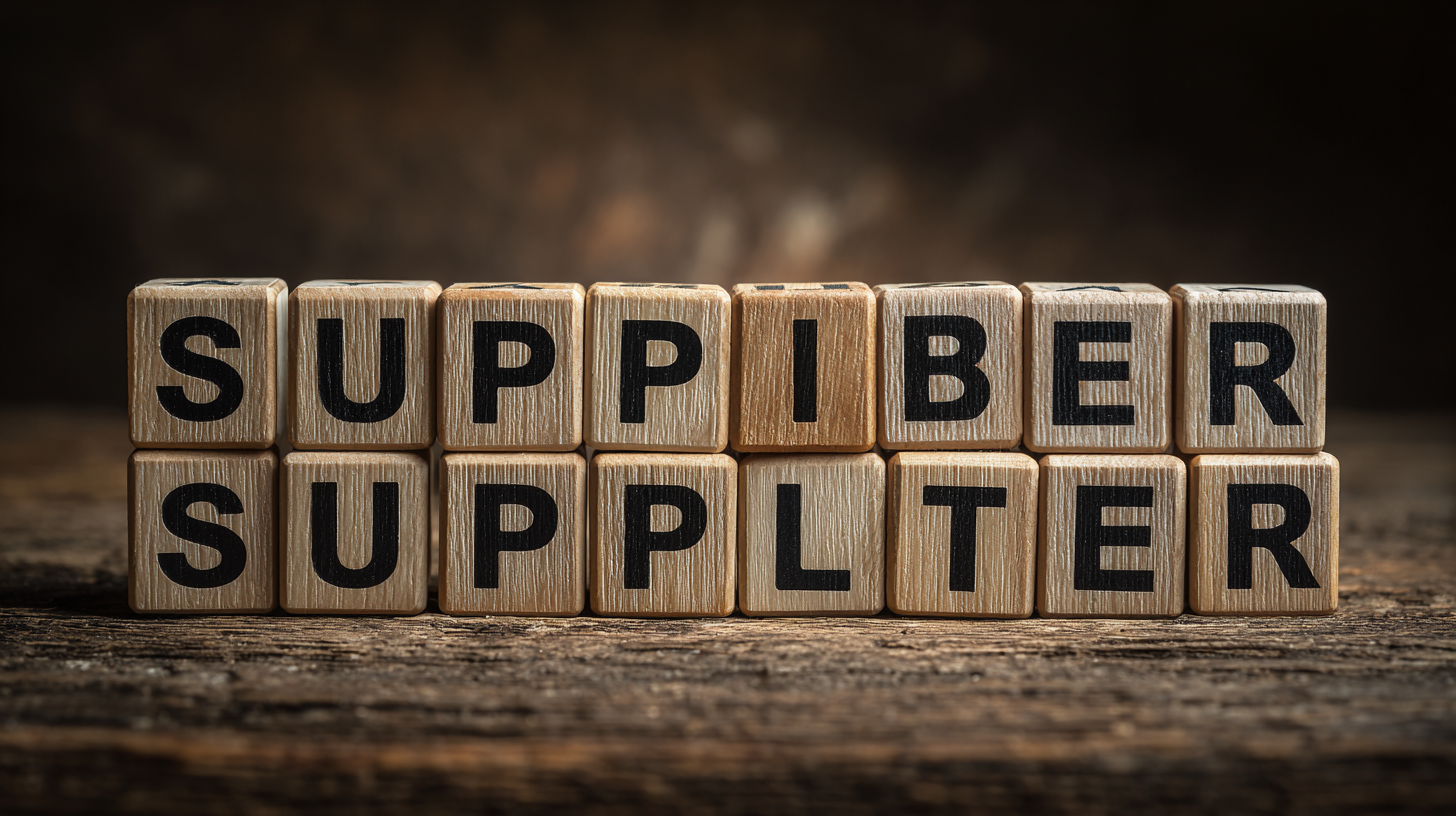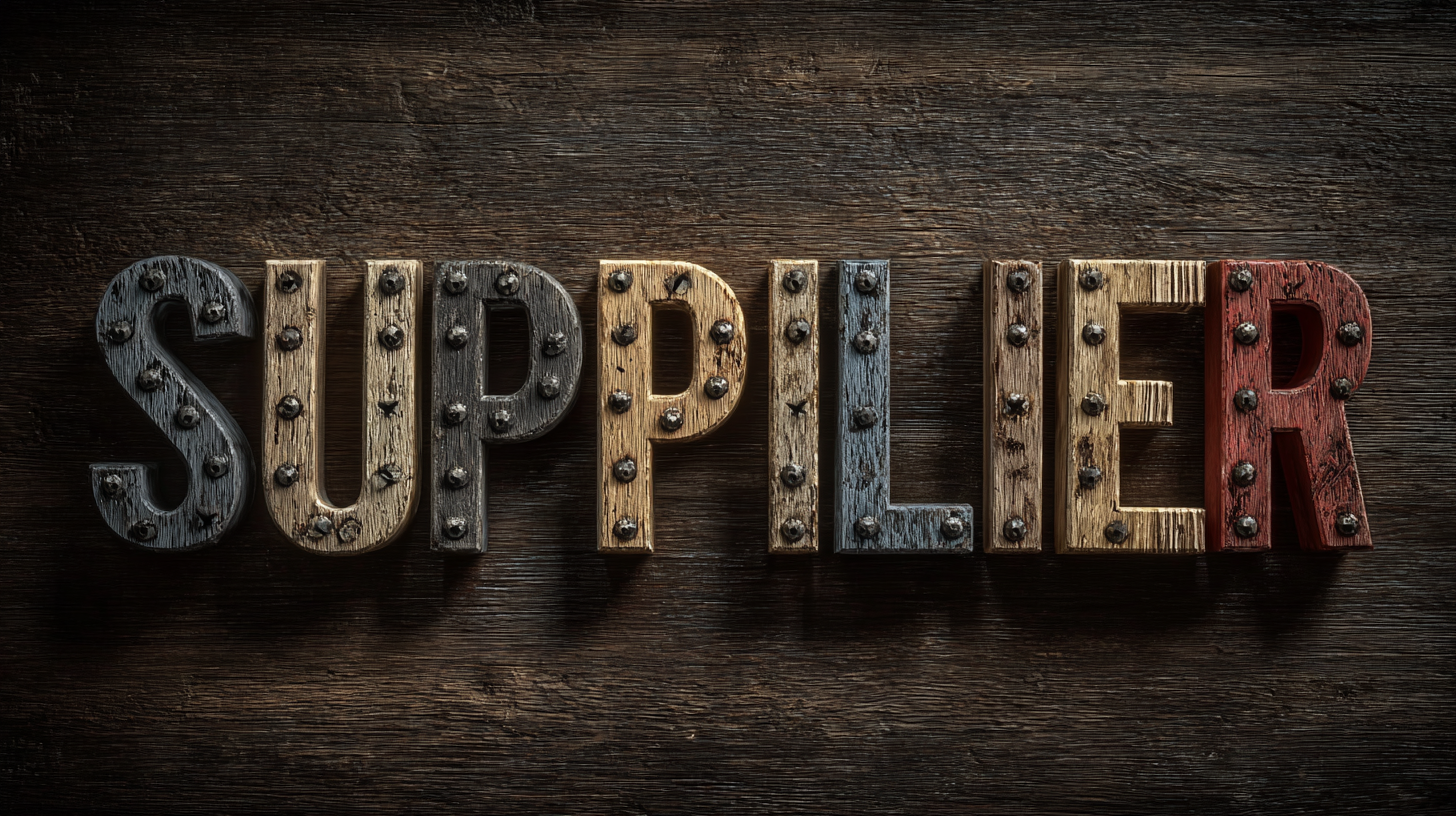
Choosing the Best Supplier for Your Needs A Comprehensive Comparison Guide
In today's rapidly evolving market landscape, choosing the best supplier for your business needs is more crucial than ever, with a recent report from Gartner indicating that 75% of companies see supplier management as a critical factor in achieving competitive advantage. As businesses strive to enhance operational efficiency and reduce costs, the right supplier partnership can play a pivotal role in driving innovation and sustainability. With supply chain disruptions becoming increasingly common, a well-selected supplier not only ensures the reliability of goods and services but also contributes to strategic growth. This comprehensive comparison guide aims to delve into the key factors that influence supplier selection, incorporating industry insights and professional data to empower decision-makers in navigating the intricate supplier landscape effectively.

Factors to Consider When Selecting a Supplier for Your Business Needs
When selecting a supplier for your business needs, several key factors must be considered to ensure a successful partnership. First and foremost, assess the supplier's ability to meet compliance standards relevant to your industry. As globalization increases the complexity of supply chains, it is crucial that suppliers are not only capable of adhering to quality and regulatory standards but also have systems in place for traceability. This will ensure that you can track materials and processes throughout the supply chain, enhancing accountability and transparency.
Another important consideration is the supplier's financial stability and reputation in the market. A financially sound supplier is less likely to face disruptions that could impact your production schedules. Additionally, researching their history of reliability and customer service can provide valuable insights. In the current business climate, marked by challenges such as the COVID-19 pandemic, it is vital to choose suppliers who demonstrate adaptability and resilience, as these traits can significantly benefit your supply chain continuity in times of crisis.
Choosing the Best Supplier for Your Needs: A Comprehensive Comparison Guide
| Criteria | Supplier A | Supplier B | Supplier C |
|---|---|---|---|
| Price | $100 | $120 | $110 |
| Quality Rating | 4.5/5 | 4.0/5 | 4.2/5 |
| Delivery Time | 2 Days | 5 Days | 3 Days |
| Customer Service | Excellent | Good | Fair |
| Payment Terms | Net 30 | Net 60 | Net 45 |
| Sustainability Practices | Yes | No | Yes |
Evaluating Supplier Reliability and Quality: Key Metrics to Analyze
When evaluating suppliers, reliability and quality are paramount in making an informed decision. According to a recent report by the Supply Chain Management Review, about 50% of supply chain disruptions can be attributed to supplier failures. This highlights the necessity of assessing a supplier's track record in meeting delivery schedules and maintaining consistent quality. Metrics such as on-time delivery rates and defect rates offer essential insights. A study conducted by the Institute for Supply Management indicates that organizations that regularly monitor these metrics see a 20% decrease in delays and around 15% improvement in product quality.
Quality certifications like ISO 9001 not only demonstrate a supplier's commitment to maintaining quality standards but also serve as a valuable indicator of their operational reliability. In fact, a survey by Deloitte reveals that companies with certified suppliers report a 30% higher satisfaction rate among their customers. By analyzing these key metrics alongside certifications, businesses can make more strategic choices, ensuring that they partner with suppliers who not only meet their quality standards but also enhance overall service reliability.

The Importance of Supplier Communication and Support in Your Partnership
When selecting a supplier, the significance of effective communication and robust support cannot be overstated. A strong partnership relies on transparency and open lines of dialogue; this ensures that expectations are clearly defined on both sides. Suppliers who prioritize communication tend to be more responsive to inquiries and issues, fostering a sense of trust that is essential for long-term collaboration. Regular updates, feedback sessions, and check-ins can enhance mutual understanding and streamline operations, making it easier to adapt to changing needs.
Moreover, the support offered by suppliers plays a critical role in the success of any business relationship. A reliable supplier not only delivers quality products but also provides assistance when challenges arise. Whether it’s troubleshooting a problem, offering training resources, or supplying timely information, a supplier's ability to respond adeptly to issues can significantly impact your operations. Therefore, when evaluating potential suppliers, it's crucial to assess their communication strategies and support structures to ensure they align with your business needs. This proactive approach can lead to a more productive and resilient partnership.
Supplier Communication and Support Evaluation
This chart compares four suppliers based on their communication effectiveness and support responsiveness. Each supplier is rated on a scale of 10, helping to visualize which supplier provides better partnership support.
Comparative Analysis: Local vs. Global Suppliers and Their Impact
When choosing a supplier, the decision between local and global sources can significantly impact your business operations. A study by Deloitte found that 79% of supply chain leaders prioritize supplier localization to reduce risks and enhance responsiveness. Local suppliers often have the advantage of shorter lead times, which is crucial in today's fast-paced market. By relying on nearby sources, companies can mitigate delays caused by international shipping and customs, allowing for greater agility in adjusting to market demands.
On the other hand, global suppliers can provide cost advantages and access to a broader range of materials and technologies. According to a report by McKinsey & Company, companies that utilize global supply chains can reduce costs by up to 20% due to economies of scale and increased competition among suppliers. However, this cost-saving comes with risks, such as geopolitical instability and supply chain disruptions from events like natural disasters or trade tariffs. The choice between local and global suppliers thus hinges on balancing cost efficiency with the need for reliability and flexibility in your supply chain strategy.
Understanding Cost Structures and Pricing Models for Better Decisions
When selecting a supplier, understanding cost structures and pricing models is crucial for making informed decisions. Different suppliers offer various pricing arrangements such as fixed pricing, tiered pricing, and pay-as-you-go models. Knowing how these structures align with your business needs can save you from unexpected expenses and ensure a more reliable budgeting process.
Tip: Always request a detailed breakdown of costs from potential suppliers. This transparency allows you to compare offers more effectively, ensuring you are not only looking at the surface price but also at what is included or excluded in those costs.
Another essential factor to consider is the potential for hidden costs, such as shipping fees, taxes, or penalties for contract changes. A thorough examination of the total cost of ownership will reveal the true financial implications of partnering with a particular supplier.
Tip: Conduct a risk assessment regarding price fluctuation. Discuss with your suppliers how they handle sudden changes in material costs or market conditions, as this could significantly affect your long-term expenses.

